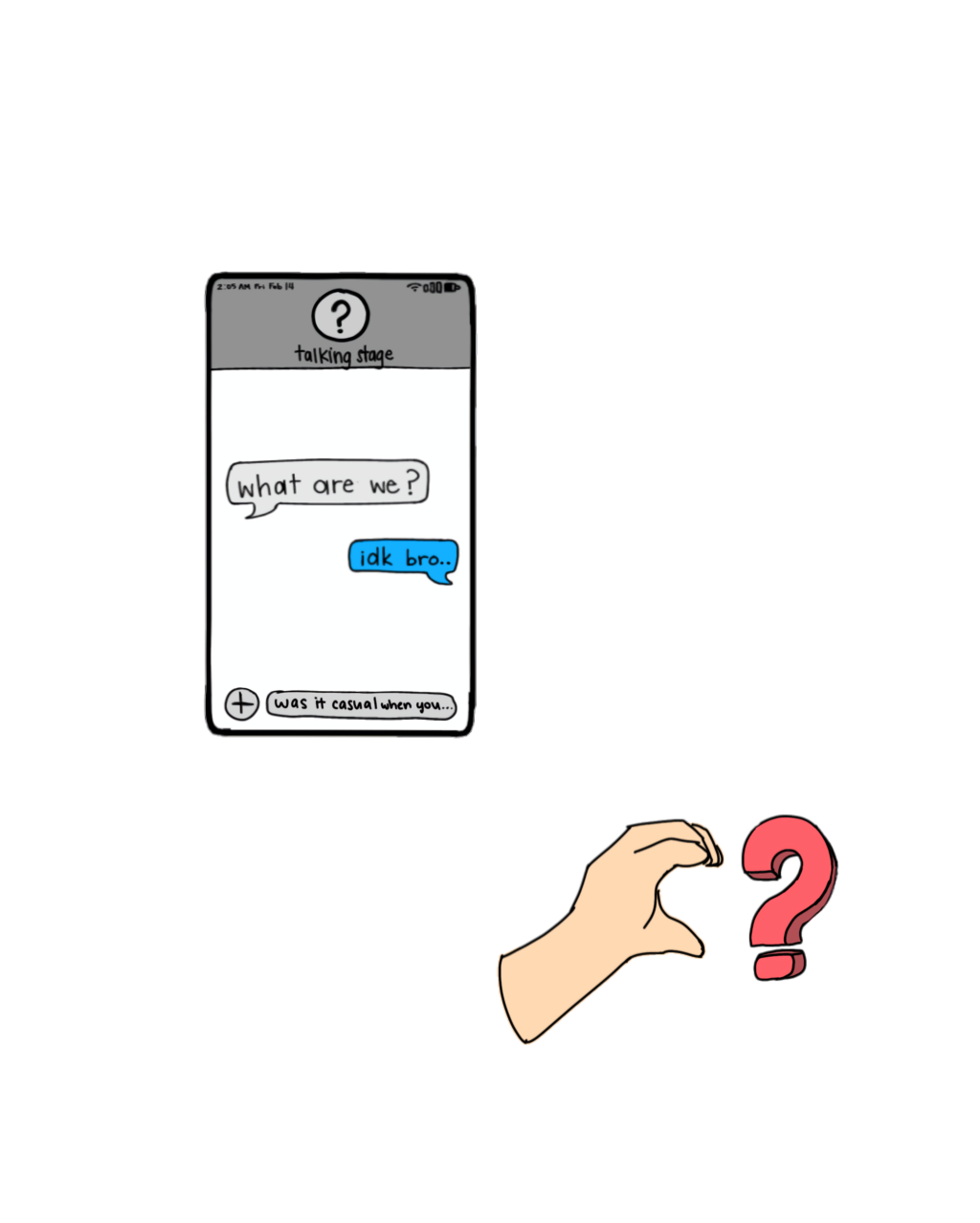
As Valentine’s Day approaches, the conversation of romance and relationships resurfaces. According to a report by market researcher YouGov, 50% of Americans aged 18–34 say they’ve been in a “situationship” – a relationship that exists in the gray area between casual and committed. This trend reflects shifting cultural attitudes, a growing reluctance to take romantic risks and a desire for a more flexible and less defined relationship.
“Situationships [are] more casual,” said freshman Emma Sakai. “It plays a little bit more into hookup culture, whereas a romantic relationship has more romantic intention, clear set boundaries, clear communication, and overall, everything’s more clear.”
Some believe that situationships stem from one’s surroundings.
“A lot of [your] environment … and social standards we’ve built have … not been valuing loyalty or commitment as much as [they] used to,” said sophomore Marshall Lim.
The unclear intentions in a situationship have many psychological effects on those in the relationship.
“In a situationship, you [need to] worry a lot more about … keeping the relationship,” Lim said. “ [For example] if the [other] person … is talking to other people … it’s technically okay. But in a relationship … it’s clearly stated that that’s not okay.”
Unlike a committed relationship, where expectations are more defined, a situationship can leave one feeling insecure.
“Situationships mess with your brain a lot,” said junior Calvin Baxter. “You’re attached, but you’re not, and when the other person stops talking to you, maybe you start wondering, ‘Were we a thing? Were we not?’ It really tears you up. It’s frustrating because you don’t know where you stand.”
The lack of commitment and emotional investment in situationships often leaves individuals feeling unappreciated and disparaged.
“I wanted something serious where I could invest in that person, but when I didn’t get that in return, it made me feel down and unappreciated,” Baxter said. “I put a lot of effort in, and then … [the relationship] all kind of burnt down. Sometimes I felt like maybe I was doing something wrong. Maybe I wasn’t good enough [and] it really hits your self-esteem.”
Situationships overall embody a shift in how young people are navigating emotional connection and independence in a rapidly changing world.



